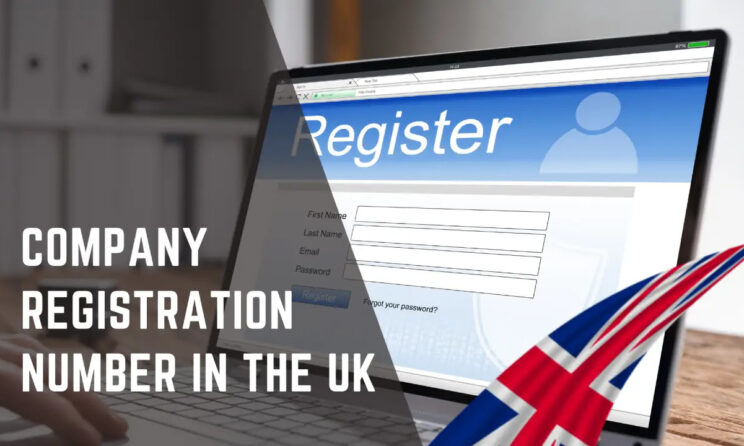
Starting your own business is an exciting venture, and registering a limited company in the UK can offer significant advantages. From limited liability to potential tax benefits, a limited company structure can provide a solid foundation for your entrepreneurial journey. But where do you begin?
Figuring the process of company registration might seem daunting, but it doesn’t have to be. With the right guidance, you can quickly and efficiently set up your business, ensuring you meet all legal requirements and position your company for success. Let’s delve into the essential steps and considerations for when it comes time for you to register a limited company in the UK.
Understanding a Limited Company
You might wonder, what exactly is a limited company? In essence, a limited company stands as an independent legal entity, separate from its owners. This structure can shield your personal assets if the company incurs debts, presenting a safety net for you.
Picture the scenario: you launch a product and, unfortunately, it flops, leading to business debts. With a limited company, your personal savings remain untouched because you and the business are legally distinct entities.
Company structures can vary, but a limited company often falls into one of two categories:
- Private Limited Company (Ltd): This involves shareholders and directors. You maintain control within a smaller circle. What if you want tight control over your operations? This might be your ideal setup.
- Public Limited Company (PLC): This allows shares to trade publicly. Seeking capital from the public? A PLC can attract broader investment.
These categories draw clear boundaries in ownership and control, presenting unique pros and cons. Wondering about the paperwork? Setting up involves registering with Companies House, creating essential documents like the memorandum and articles of association, and ensuring you comply with tax regulations.
Why does this structure appeal to business owners? It’s about more than just limited liability. You might benefit from lower corporation tax rates and enhanced credibility with customers and suppliers.
Consider the future. You could sell your shares to raise capital or pass on the legacy. In contrast, a sole trader faces challenges in these areas due to the intertwined nature of personal and business finances.
The decision to form a limited company should not be taken lightly. You should reflect on your business goals. Do you aim to expand and invite investors? Or do you prefer a controlled, family-owned enterprise?
This separation of personal and business finances, along with potential tax benefits, makes a compelling case for many entrepreneurs. After all, reducing personal risk can make the entrepreneurial journey less daunting and potentially more profitable.
Benefits of Registering a Limited Company
Choosing to register a limited company brings many benefits that can significantly enhance your business’s operational effectiveness and market perception.
Legal Protection
Having a limited company grants you personal asset protection. If your business faces financial trouble, your assets stay secure, unlike sole traders. This legal protection extends only to the business’s liabilities. Therefore, any debts or legal actions taken against the company won’t impact your personal finances directly. Do you see how this can lower your financial risk?
Credibility
A limited company status can boost your business’s reputation. Customers and clients often trust companies that have structured entities over sole traders. This trust can lead to more business opportunities. Did you know it might also help in securing contracts with larger firms that prefer to work with incorporated businesses? With this status, you can project a professional image that differentiates you from competitors.
Tax Advantages
Limited companies might benefit from favourable tax conditions. Paying corporation tax, often lower than personal income tax rates, can result in significant savings. Additionally, dividends paid to shareholders usually incur less tax than income. Have you considered how this tax efficiency could maximise your profitability? The financial benefits of lower tax rates can make reinvestment in your business more feasible. You’ve got to evaluate these benefits to see how forming a limited company provides both immediate and long-term advantages for your business.
Steps to Register a Limited Company
Registering a limited company can seem complex but following a structured approach simplifies the process. Here are the essential steps to ensure your company is registered efficiently.
Choose a Company Name
Selecting a name is crucial. It should be unique, not infringing on existing trademarks. You’ll verify its availability using the Companies House name availability checker. Avoid sensitive words unless you have permission for their use. The name reflects your brand, so choose wisely.
Appoint Directors and Company Secretary
You need at least one director; they ensure the smooth running of the company. Consider appointing a company secretary too, although it’s not mandatory. Directors should be over 16 with no disqualifications. Their details must be documented during registration.
Register with Companies House
For your company to be a legal entity, register it with Companies House. You’ll complete Form IN01 online or by post, providing details such as your company’s name, directors, and registered office address. Registration fees apply, so be ready to make the payment.
Prepare a Memorandum and Articles of Association
These documents outline your company’s structure and rules. The memorandum is a short statement signed by all initial shareholders agreeing to create the company. The articles set out how the company will be run. You may use model articles or tailor them to your needs.
Register for Corporation Tax
After incorporation, register for Corporation Tax with HMRC within three months of starting business activity. Failing to do so might result in penalties. You’ll need your company’s Unique Taxpayer Reference (UTR) to complete this process.
Common Pitfalls to Avoid
Starting a limited company can be a transformative step for your business, but there are some common pitfalls you should steer clear of. Being aware of these from the outset can save you time, money, and headaches down the line.
Choosing an Inappropriate Name
The name of your company isn’t just a label, it’s an identity. A poorly chosen name can misrepresent your brand or even violate existing trademarks. Research is critical; you need to ensure that your chosen name is unique and doesn’t conflict with another trademark. Companies House has a name availability checker that helps, but also check the Intellectual Property Office’s database. Reflect on what message you want your company name to convey and ensure it aligns with your brand.
Ignoring Compliance Requirements
Compliance might seem tedious, but it ensures your company operates smoothly and legally. Failing to meet obligations like filing annual returns or maintaining proper accounting records can result in penalties and, in severe cases, court actions. Stay up to date with Companies House deadlines and HMRC requirements to avoid these pitfalls. Invest in accounting software or professional services to help you stay compliant. Ignoring compliance isn’t worth the risk and can result in significant financial and legal consequences.
Final Thoughts
Registering a limited company in the UK offers numerous benefits, including safeguarding personal assets and potential tax advantages. By understanding the steps involved and the costs associated with the process, you can figure out registration smoothly and efficiently. Avoid common pitfalls like choosing an inappropriate name or neglecting compliance requirements to ensure your business operates legally and successfully. With proper planning and adherence to legal obligations, your limited company can thrive and grow in the competitive UK market.





